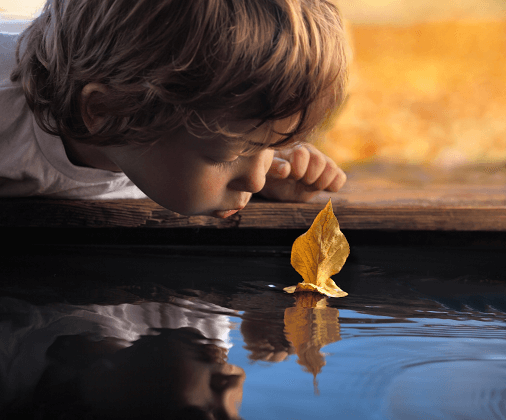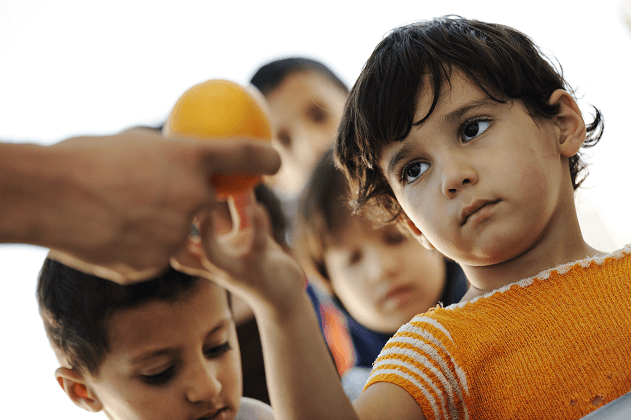Nothing in my life has been a greater challenge than parenting, though nothing has been more enriching, either.
Parenting has brought out the very worst in me, moments I cringe over when I think about. Fortunately, it’s also brought out the best parts of me, moments when I believe I’ve been at my best.
I once laughed at a friend who said he was ready for children after successfully taking care of his dog for years. The truth is that no one is ever ready; how could they possibly be? The raw emotion and complexity of parenting is daunting for anyone.
My parenting career started off in a pretty confusing way. Some friends who were also parents recommended that I read the book Baby Wise. They were following its practices and it was working magically for them. If you aren’t familiar with the book, it preaches a very structured process for raising children. Daily feedings at the same exact time, sleep at the same time each night, ditto with bathing and play times, etc. It was hard to argue with the positive results it was having on my friend’s children.
Shortly thereafter, another couple recommended that my wife and I read a book about Attachment Parenting. So we did. It couldn’t have been more diametrically opposed to the Baby Wise principles. Young children were supposed to sleep with their parents, and feedings and sleep-times were based on the child’s natural biological rhythms and needs. It was working wonders with their children and many others my wife and I knew.
So, is it better to put a baby to sleep every night in their crib at the exact same time, or to allow them to sleep in your bed and go to sleep at their own pace?
The answer, confusingly, is yes.
Some parents are predisposed to structure, and others are predisposed to nurturing. The only parenting style that works, that only one that will ever work, is the one that’s true to you, reflects your life and personality, and which you can execute with consistency over a long period of time.
No one has all the answers to being a great parent. In fact, I’m sure that, by the time I really feel like I have it under control, my kids will be on their way out of our house.
That said, here’s some wisdom about what makes a good parent that I’ve absorbed:
1. Be Authentic
Parents who are in the Marines will find it perfectly natural to create an environment of structure for their kids. Circus-performing parents will probably have an easy time keeping things fun. Whatever they’re comfortable with in their own lives will be a parenting style they can execute consistently.

It’s still useful to watch and learn from other parents, and to adapt the best of what you learn from them into what you’re doing. More than anything, though, your child needs consistency, and that means doing what feels natural and authentic to you, because you’ll be able to maintain it long-term.
2. Empower
I was once told that the greatest gift I can give my children is the ability to thrive without me. It’s easy to lose sight of this goal, but it’ll smack you square in the face when your children become teenagers and you start thinking about their lives after high school.
From the moment your kids are born, try to keep in mind the end goal of them being fully functional independent adults (eventually). Obviously, that means different things at different stages of their lives. However, you want to help them begin to feel the gratification of having authentic positive commerce with the world as early as possible. This is the experience of interacting with and affecting the world to their own benefit without help from anyone else – and it’s critical to them acquiring independence.
The point is, you can’t always be there for them, so they have to learn to stand on their own. It stinks, but sometimes you have to stay back and allow them to fail. Support them, but put the onus on them to succeed on their own without your help as much as possible.
3. Be Curious, Not Furious
It seems to me that raising children is much more complex than it use to be. They’re far more savvy than I was, and have more access to information about the world, so parenting requires a lot more finesse than it seems like it did for my parents.
For starters, I’ve noticed that when I’m reactive, I do more damage than good. When things get difficult, my ability to control my emotions and gather information always ends up creating better resolutions and child development.
A life coach I know once gave me a great mantra: “Be curious, not furious.” What I’ve determined is that when my kids do erratic or disrespectful things, it’s less about me and much more about what’s going on inside them.
Just start asking questions. Some of my favorites are:
- What’s going on?
- Is everything ok?
- Did anything happen today that has you upset?
- What do you think needs to change?
- How do you feel about what you just did?
In addition to confusing (and occasionally torturing) your kids with this approach, it has two benefits:
First, it allows you to slow down and gather yourself, so you can access the softer part of your heart and act more from a place of love, even if discipline is needed.

Just remember this: Your child is struggling. They’re trying to figure things out to the best of their ability. They want to be good people and do good things, but they need help… and you’re the one they need it from most. Locate this perspective, and it will put you in a completely different state of mind – one that’s much better suited for effective parenting.
4. Be the Light So You Can Shine the Light
We all know inherently from our own childhood that children are much more likely to do what their parents do than what they say.
With that in mind, the most important mindset we can teach our children is one of growth. Life is a process and we should take advantage of each day and every opportunity to become more. As we do this, the world reciprocates with greater abundance in the form of joy, meaning, gratitude, love and, yes, money.
No one is perfect. It’s important for your child to understand that you aren’t perfect, but to see you have compassion for yourself even in light of your failings. That means having the ability to laugh at yourself and maintain humility, yet also caring enough about yourself to constantly seek ways to become a better person.
I love the mantra, “I am becoming the light, so that I can shine the light.” It keeps me focused on doing everything I can do to improve myself, and pushing forward in that vein may be the best thing I’ll ever do for my kids.
One of the best stories I ever heard was from a football player who was being inducted into the NFL Hall of Fame. He shared an anecdote from his life when his father was playing with him and his brothers in the front yard. It was raining, and their mother came out scolding them for tearing up the wet lawn. The father responded, “Honey, we’re raising boys, not grass!”
Parenting may be the most important thing many of us will ever do. It’s a great responsibility and a wonderful blessing. It changes us and should make us better. Time passes quickly and possessions come and go, but what remains forever are the gifts we give our children in the form of helping them become the independent and capable adults they have the potential to be. That’s what makes a good parent.





